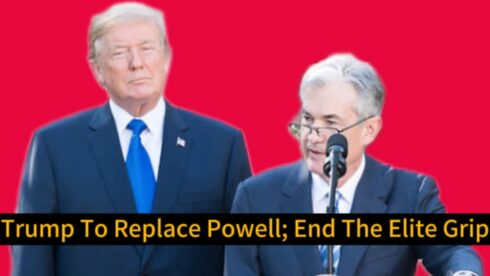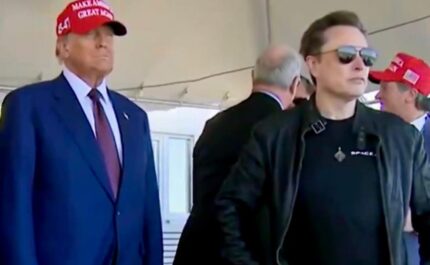Trump says he will announce his nominee for the next Federal Reserve Chair “very soon,” a declaration that has already sparked speculation across financial markets and political circles. With current Chair Jerome Powell’s term nearing expiration, Trump’s statement hints at a possible dramatic pivot in U.S. monetary policy.
Trump emphasizes that his decision will be based on “loyalty, strength, and commitment to America-first economics,” sharply criticizing Powell for what he calls “interest rate madness” and “timid inflation control.” His tone suggests he is prepared to install a Fed chief who aligns more aggressively with his deregulatory and pro-growth agenda, even at the risk of undermining central bank independence.
A Fed Loyalist, Not a Globalist
Trump says the Federal Reserve has been “out of touch with working-class Americans,” accusing it of bowing to global financial elites rather than prioritizing domestic economic strength. He insists the next Fed Chair must champion Main Street over Wall Street, hinting he may nominate a political ally or populist economist rather than a conventional technocrat.
His words are being interpreted as a declaration of war on the traditional role of the Fed as an independent, inflation-targeting institution. Critics warn that such a move could erode investor confidence and trigger international backlash. However, Trump supporters see it as a necessary correction to what they call a “rigged financial order” that favors the rich and punishes the middle class.
Powell on the Chopping Block?
Trump says Jerome Powell’s performance has been “weak and hesitant,” doubling down on long-standing criticisms. He has repeatedly blamed Powell for not slashing interest rates fast enough in 2018–2019 and for “delayed action” during inflation spikes in recent years.
Although Powell was originally appointed under Trump, their relationship soured quickly amid economic turbulence. Analysts now believe Trump is unlikely to reappoint him, instead seeking a more politically aligned Fed Chair. This departure from precedent—where presidents generally respect the Fed’s autonomy—would mark a seismic shift in how monetary policy is influenced from the Oval Office.
Markets React: Uncertainty Brews on Wall Street

Trump says investors should “relax and trust” that his Fed pick will boost growth and maintain price stability, but markets are responding with visible caution. The Dow dipped slightly after his announcement, while bond yields rose on fears of increased political interference in the central bank’s decision-making process.
Wall Street strategists warn that if Trump selects a Fed Chair who prioritizes political loyalty over inflation control, it could destabilize long-term economic expectations. Still, some conservative economists argue that the Fed needs a “wake-up call” and more flexibility to support growth without overreacting to inflationary trends.
Potential Picks: Loyalists, Hawks, or Outsiders?
Trump says he’s considering “several very smart, very strong candidates,” but hasn’t revealed names. Speculation is swirling around figures like Judy Shelton, a gold standard advocate, as well as economist Arthur Laffer and Trump-aligned adviser Stephen Moore—all of whom have questioned the Fed’s authority and called for radical reform.
If he selects someone from this ideological camp, it could signal a major disruption in how the U.S. approaches monetary policy. Critics argue these candidates lack the institutional expertise to manage a $27 trillion economy, while supporters claim fresh thinking is exactly what the Fed needs after years of cautious, conventional strategies.
A Political Fed? Independence at Risk
Trump says the Fed must “serve the American people, not the D.C. swamp,” openly challenging the principle of central bank independence. This statement has reignited fears that a Trump-led administration could convert the Federal Reserve into an extension of executive power, undermining its global credibility.
While the message resonates with populist voters tired of elite institutions, economists and former Fed officials warn that politicizing monetary policy could lead to inflationary chaos or currency instability. Whether Trump follows through on his rhetoric or recalibrates under pressure remains uncertain—but the warning is loud and clear: the Fed may never operate the same way again.














